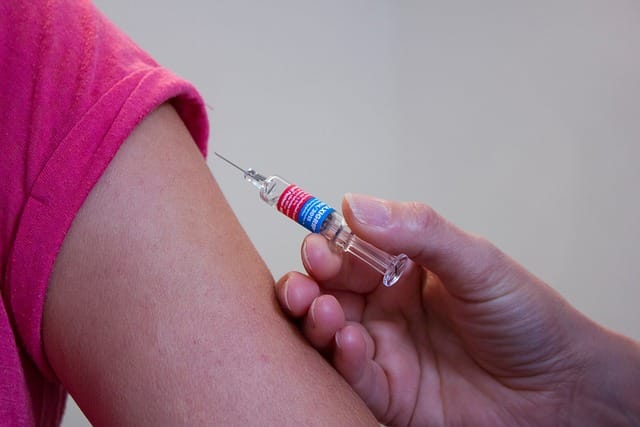Respiratory syncytial virus (RSV) is a significant cause of respiratory illness in infants and young children. Over the years, researchers and healthcare professionals have been searching for effective ways to combat this virus, leading to advances in RSV vaccine development. In this blog post, we will delve into the recent breakthroughs in RSV vaccine technology, the importance of vaccination, and the potential impact these advances may have on public health.
Understanding Respiratory Syncytial Virus (RSV)
What is RSV?
Respiratory syncytial virus (RSV) is a common virus that leads to mild, cold-like symptoms in most healthy individuals. However, it can cause severe respiratory issues in infants, elderly adults, and those with weakened immune systems. Each year, RSV is responsible for numerous hospitalizations, particularly in children under two years old.
Why is RSV a Concern?
The concern surrounding RSV lies in its ability to cause serious respiratory infections. According to the World Health Organization (WHO), RSV accounts for approximately 60% of hospital admissions for respiratory infections in children under five years old. Furthermore, it poses risks to older adults, especially those with pre-existing conditions.
The Need for an RSV Vaccine
Historical Context
Despite its significant impact, an effective vaccine for RSV has eluded researchers for decades. Early attempts at vaccination in the 1960s led to increased hospitalizations among vaccinated children, causing a halt in further development. Since then, extensive research has focused on understanding the virus and developing a safe and effective vaccine.
The Burden of RSV
The burden of RSV is immense, with millions of cases reported annually. In the United States alone, RSV leads to an estimated 2.1 million outpatient visits and 57,000 hospitalizations in children under five each year. This burden highlights the urgent need for advances in RSV vaccine technology.
RSV in a Global Context
Globally, RSV poses a significant public health threat. It is estimated that RSV causes approximately 160,000 deaths each year among children under five worldwide. In low-income countries, the burden of RSV is particularly high due to limited access to healthcare and preventive measures. As researchers work on advances in RSV vaccine technology, addressing these global disparities becomes increasingly important.
Recent Advances in RSV Vaccine Development
The Landscape of Vaccine Research
Recent years have seen significant progress in the development of RSV vaccines. Several candidates are currently in various stages of clinical trials, with promising results. Researchers are exploring different approaches, including live attenuated vaccines, subunit vaccines, and mRNA-based vaccines.
Live Attenuated Vaccines
Live attenuated vaccines use weakened forms of the virus to elicit an immune response. This approach has shown promise in clinical trials, demonstrating strong immune responses in infants and young children. Notably, a live attenuated RSV vaccine candidate, known as RSV459, has shown promising results in early-phase trials.
Mechanism of Action
The mechanism behind live attenuated vaccines involves introducing a weakened version of the virus into the body. This stimulates the immune system to produce antibodies and memory cells, preparing the body to fight off actual infections in the future. The RSV459 candidate has been shown to elicit robust immune responses, which is critical for ensuring long-term protection.
Subunit Vaccines
Subunit vaccines contain pieces of the virus rather than the whole virus. They are designed to stimulate the immune system without causing disease. Recent studies have shown that subunit vaccines targeting RSV F protein can provoke robust immune responses in adults and children, making them a promising option for further development.
Key Findings
Clinical trials for subunit vaccines have demonstrated that they can provide sufficient immune protection, especially when administered in multiple doses. The targeted approach of using specific viral proteins minimizes the risk of adverse reactions while maximizing immune response.
mRNA-Based Vaccines
The success of mRNA vaccines in combating COVID-19 has opened new avenues for RSV vaccine development. Researchers are now exploring mRNA technology to develop an effective RSV vaccine. These vaccines could provide a quick and efficient response to RSV infection, potentially revolutionizing prevention strategies.
Advantages of mRNA Vaccines
mRNA vaccines have several advantages, including rapid development timelines and the ability to generate a strong immune response. By using synthetic mRNA, these vaccines can be designed to produce viral proteins that trigger an immune response without introducing live virus. This technology offers a promising pathway for advances in RSV vaccine development, as it could allow for swift adaptation to emerging strains of RSV.
Clinical Trials and Results
Current Clinical Trials for RSV Vaccines
Multiple clinical trials are underway to assess the safety and efficacy of various RSV vaccine candidates. These trials involve diverse populations, including infants, children, pregnant women, and older adults. The results of these trials will play a crucial role in determining the future of RSV vaccination.
Promising Results from Recent Trials
Recent clinical trials have reported encouraging findings regarding the safety and immunogenicity of RSV vaccines. For instance, a trial involving an RSV F protein subunit vaccine demonstrated a robust immune response in adults and pregnant women, suggesting potential for protecting both mothers and infants.
Highlights from Key Studies
Trial of Live Attenuated Vaccine (RSV459): Early results indicated a significant reduction in symptomatic RSV infections among vaccinated infants. Participants exhibited strong antibody responses, confirming the vaccine’s potential effectiveness.
Subunit Vaccine Trials: Studies involving RSV F protein subunit vaccines showed a promising safety profile, with no serious adverse events reported. Participants displayed a significant increase in neutralizing antibodies, essential for protection against RSV.
mRNA Vaccine Developments: Initial trials of mRNA-based RSV vaccines have shown high immunogenicity in adults, leading researchers to move forward with plans for pediatric studies.
Key Findings and Implications
The advances in RSV vaccine development, particularly in clinical trials, indicate a significant shift towards effective prevention strategies. As researchers continue to explore various vaccine platforms, the possibility of a safe and effective RSV vaccine for broad populations appears more promising than ever.
The Importance of Vaccination
Protecting Vulnerable Populations
Vaccination against RSV is crucial for protecting vulnerable populations, including infants, older adults, and individuals with compromised immune systems. By reducing the incidence of RSV infections, we can decrease hospitalizations and improve overall health outcomes.
Community Immunity
The success of RSV vaccination will also contribute to community immunity, reducing the spread of the virus within the population. Vaccination campaigns can help create a protective barrier, ensuring that even those who cannot receive the vaccine—such as certain infants—are less likely to contract the virus.
Economic Impact
The economic burden of RSV is substantial, with healthcare costs associated with hospitalizations and outpatient visits. Implementing vaccination programs can significantly reduce these costs, benefiting both healthcare systems and families.
Addressing Health Disparities
Equitable access to RSV vaccines can help mitigate health disparities among different populations. Communities that face higher rates of RSV infections often lack access to healthcare resources. By providing vaccines, we can improve health equity and reduce the overall burden of respiratory diseases.
Addressing Challenges in RSV Vaccine Development
Regulatory Hurdles
Despite the promising advances in RSV vaccine research, several regulatory challenges must be addressed. Ensuring the safety and efficacy of new vaccines is paramount, requiring extensive clinical testing and evaluation before widespread use.
The Role of Regulatory Agencies
Agencies like the Food and Drug Administration (FDA) and the European Medicines Agency (EMA) play a crucial role in overseeing vaccine development. Their stringent requirements for clinical trials and safety assessments are designed to protect public health. As new RSV vaccines move through the approval process, collaboration with these agencies will be essential.
Public Awareness and Acceptance
Public awareness and acceptance of RSV vaccines will also play a critical role in their success. Education campaigns must inform the public about the importance of vaccination and dispel any misconceptions surrounding vaccine safety.
Building Trust in Vaccination
Building trust within communities is vital for the success of any vaccination program. Engaging healthcare providers and community leaders can help disseminate accurate information and encourage vaccine uptake.
Global Access to RSV Vaccines
Ensuring equitable access to RSV vaccines globally is essential for maximizing their impact. Collaboration between governments, non-profit organizations, and pharmaceutical companies is necessary to make vaccines accessible to low-income countries, where the burden of RSV is often highest.
Initiatives for Global Vaccine Access
Organizations such as Gavi, the Vaccine Alliance, are actively working to improve access to vaccines in low-income countries. Their efforts to subsidize vaccine costs and facilitate distribution are crucial for ensuring that all populations benefit from advances in RSV vaccine development.
Future Perspectives on RSV Vaccines
Innovations on the Horizon
The future of RSV vaccine development holds exciting possibilities. As researchers continue to explore new technologies and approaches, we may see innovative vaccines that provide long-lasting immunity and protection against multiple strains of RSV.
Emerging Technologies
Advances in vaccine delivery systems, such as microneedle patches and intranasal vaccines, could enhance the effectiveness and accessibility of RSV vaccination. These technologies may provide easier administration and improved immune responses.
Combination Vaccines
One potential avenue for future research is the development of combination vaccines that protect against RSV and other respiratory viruses. This approach could streamline vaccination efforts and enhance overall protection for vulnerable populations.
Potential Combinations
Combination vaccines may include protections against RSV, influenza, and other common respiratory viruses. Such vaccines could simplify vaccination schedules and increase compliance among parents and caregivers.
Ongoing Research and Development
Continuous research and development will be crucial for addressing emerging challenges in RSV prevention. As our understanding of the virus evolves, so too must our strategies for combating it.
Collaborations in Research
Collaboration among academic institutions, pharmaceutical companies, and government agencies will be vital for advancing RSV vaccine research. By pooling resources and expertise, stakeholders can accelerate the development and distribution of effective vaccines.
Community Engagement and Education
The Role of Healthcare Providers
Healthcare providers play a critical role in educating patients about the importance of RSV vaccination. By providing accurate information and addressing concerns, providers can help increase vaccine uptake in at-risk populations.
Public Health Campaigns
Public health campaigns can further raise awareness of RSV and the importance of vaccination. These campaigns should target parents, caregivers, and healthcare professionals to ensure a comprehensive approach to education.
Empowering Families
Empowering families with knowledge about RSV and its risks can encourage proactive health measures. Informational resources, workshops, and community events can facilitate discussions about vaccination and respiratory health.
Conclusion
The advances in RSV vaccine development represent a significant step towards better health for individuals and communities worldwide. With promising clinical trial results and innovative research efforts, the prospect of a safe and effective RSV vaccine is closer than ever. By prioritizing vaccination, we can protect vulnerable populations, reduce the burden of respiratory infections, and ultimately improve public health outcomes.
As researchers continue to develop and refine RSV vaccines, it is crucial to engage communities, educate families, and ensure equitable access. Together, these efforts can lead to a healthier future where RSV no longer poses a significant threat to our most vulnerable populations.





